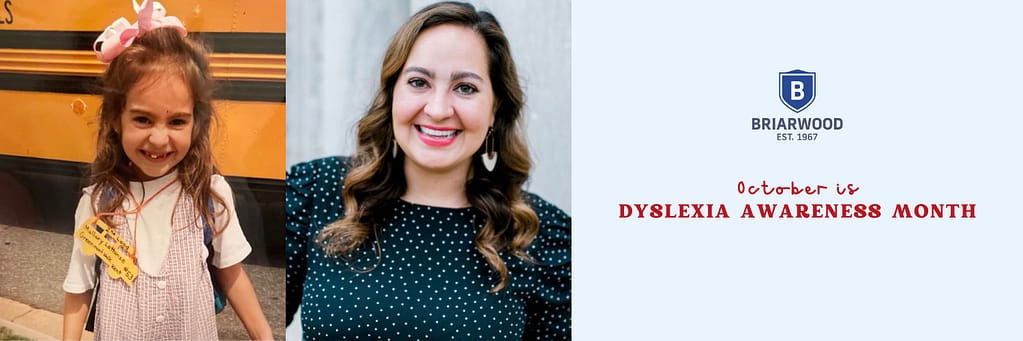Dyslexia Awareness Month: Highlighting Briarwood's Director of Admissions

Mallary Lattanze, M.Ed., LDT, CALT, Director of Admissions at The Briarwood and Tuttle Schools, has experienced the importance of literacy education and understands why raising awareness about dyslexia is crucial in a student’s journey to success.
What has been your journey with dyslexia?
“I appreciate the opportunity to share my journey. My experience illustrates the challenges many individuals face when navigating educational systems that often lack adequate support for students with dyslexia. Despite these obstacles, I was determined to pursue my passion for helping others, which ultimately led me to become a certified academic language therapist.
Throughout my educational experience, I encountered numerous difficulties. Although my mother advocated for my evaluation at an early age, my teachers and administrators initially dismissed her concerns, believing I was a good student who simply needed to try harder. It was not until I was diagnosed in second grade with a specific learning disability in reading — commonly known as dyslexia — that my challenges were acknowledged.
Growing up in metro Atlanta, I faced significant limitations within the public school system. At that time, intervention services were non-existent. I was placed in special education resource classes alongside students with varying abilities, where I was advised to ‘practice my reading’ rather than being taught effective strategies for improvement. While I remember each teacher treating me with respect and care, unfortunately, they lacked the training necessary to effectively teach students with dyslexia.
During my eighth-grade evaluation renewal, I faced additional hurdles. The school claimed that my mother speaking Spanish (despite her fluency in English) would create an ‘unfit environment’ for the re-evaluation. My mother later expressed that this was merely an excuse to justify their inability to provide the necessary support for my transition to high school. As a result, I struggled throughout high school, resorting to cheating in a Spanish class (ironically). I managed to achieve decent grades with the help of several tutors, but I graduated with lingering challenges.
In college, I faced further setbacks, including being denied accommodations due to a lack of updated testing awareness. This led to failing a couple of courses and ultimately graduating later than anticipated. I chose not to attend my college graduation, opting instead to enter the workforce to demonstrate my skills as an educator. Initially, I vowed never to return to school; the thought of graduate school made me feel anxious. However, my passion for supporting students like myself motivated me to pursue certification as an academic language therapist.
I was fortunate to receive accommodations during graduate school, allowing me to graduate with a 4.0 GPA. Shortly after graduation, I completed the therapist program and obtained a license to be a licensed dyslexia therapist. This experience has reinforced my commitment to advocate for and empower students with learning differences, ensuring they receive the support I wished I had during my own educational journey.”
What are some accomplishments you’re proud of, and what do you do today?
“My greatest accomplishments and proudest moments as an individual with dyslexia have occurred over the past decade. Growing up, I was a very anxious girl, and many believed I would never move away from home. However, after facing challenges in college, I sought an opportunity to relocate to New Zealand to complete my final internship. This experience allowed me to break out of my shell, and I am now the only sibling living outside my home state.
Graduating from both the Neuhaus Education Center’s therapist program and graduate school in the same year were significant milestones for me, especially considering that my experiences as a student had often been marked by feelings of failure and anxiety. Following both graduations, I was promoted within Houston Independent School District (HISD) to serve as the first dyslexia team lead for curriculum and as an in-house trainer for their dyslexia program. This promotion came after I single-handedly designed and organized the K-12 dyslexia content for HISD’s COVID-19 at-home learning initiative.
Currently, I hold multiple roles, including licensed dyslexia therapist, certified academic language therapist, and director of admissions. I continue to provide private dyslexia therapy to students after school, serve as a speaker at conferences and events, and act as the vice president of the Houston branch of the International Dyslexia Association (IDA). Additionally, I am actively involved at both the state and national levels with the Academic Language Therapy Association (ALTA).”
What does working at Briarwood mean to you?
“Although I have officially been at Briarwood for only four months, I have visited the school on several different occasions. My long-standing involvement in the dyslexia community and nonprofit organizations has allowed me to attend various community events hosted by Briarwood. I have recommended Briarwood to former students who needed more support than I could provide, recognizing that they would benefit greatly from its resources. Now that I am working here on campus daily, I find great joy in seeing some of my former students thriving and providing new students through admissions the opportunity for a life-changing experience.”
Lattanze ended by saying, “My dyslexia strengths and superpowers include thinking outside the box, generating innovative ideas, and maintaining a clear vision of the end goal. Despite facing challenges as a child, I am recognized for my strong organizational skills and attention to detail. I am also no longer afraid to speak in front of a large audience and tell others that I am a proud dyslexic!”
Media Contact: Erin Gregg, egregg@briarwoodschool.org

